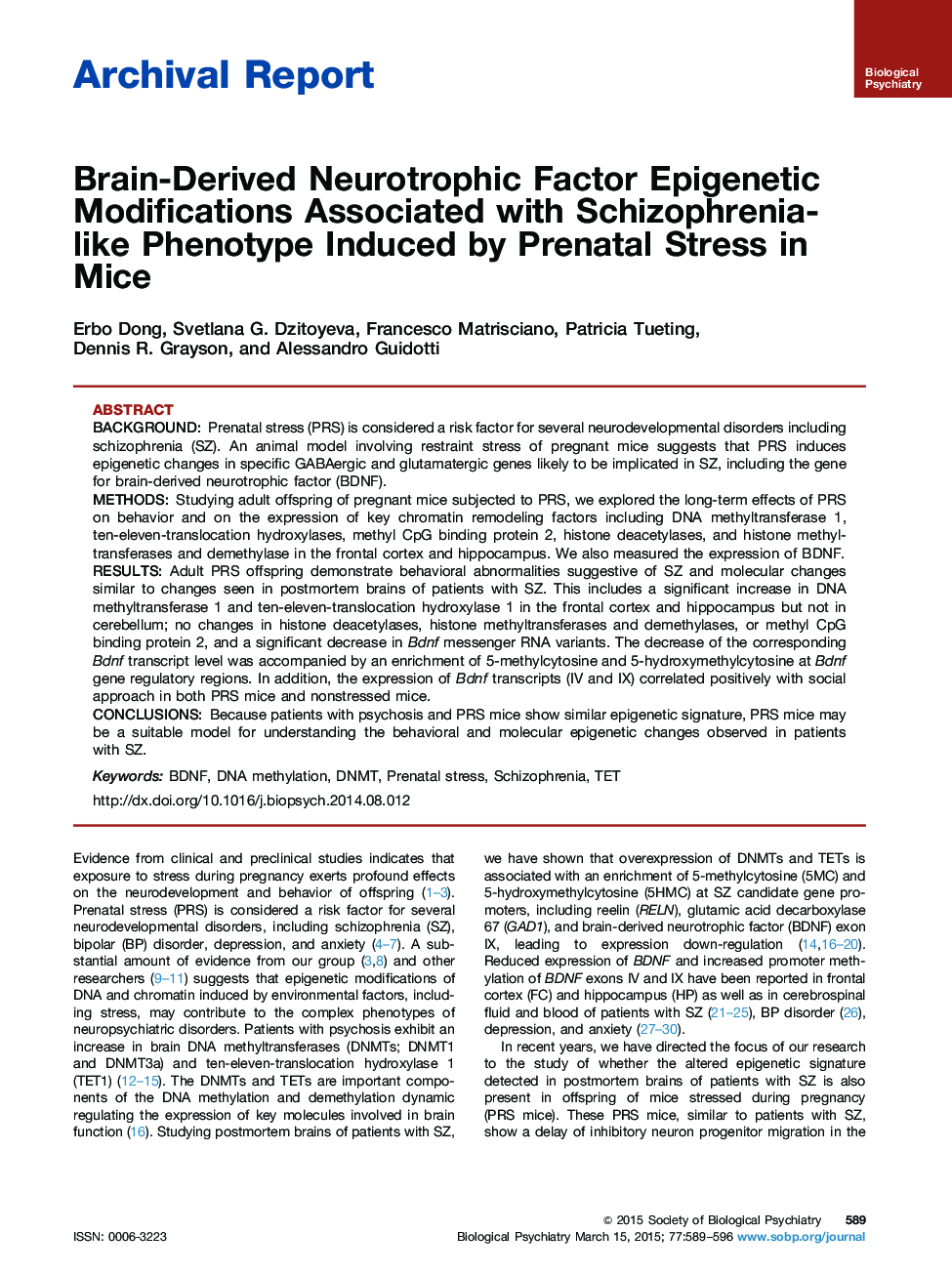| Article ID | Journal | Published Year | Pages | File Type |
|---|---|---|---|---|
| 4177389 | Biological Psychiatry | 2015 | 8 Pages |
BackgroundPrenatal stress (PRS) is considered a risk factor for several neurodevelopmental disorders including schizophrenia (SZ). An animal model involving restraint stress of pregnant mice suggests that PRS induces epigenetic changes in specific GABAergic and glutamatergic genes likely to be implicated in SZ, including the gene for brain-derived neurotrophic factor (BDNF).MethodsStudying adult offspring of pregnant mice subjected to PRS, we explored the long-term effects of PRS on behavior and on the expression of key chromatin remodeling factors including DNA methyltransferase 1, ten-eleven-translocation hydroxylases, methyl CpG binding protein 2, histone deacetylases, and histone methyltransferases and demethylase in the frontal cortex and hippocampus. We also measured the expression of BDNF.ResultsAdult PRS offspring demonstrate behavioral abnormalities suggestive of SZ and molecular changes similar to changes seen in postmortem brains of patients with SZ. This includes a significant increase in DNA methyltransferase 1 and ten-eleven-translocation hydroxylase 1 in the frontal cortex and hippocampus but not in cerebellum; no changes in histone deacetylases, histone methyltransferases and demethylases, or methyl CpG binding protein 2, and a significant decrease in Bdnf messenger RNA variants. The decrease of the corresponding Bdnf transcript level was accompanied by an enrichment of 5-methylcytosine and 5-hydroxymethylcytosine at Bdnf gene regulatory regions. In addition, the expression of Bdnf transcripts (IV and IX) correlated positively with social approach in both PRS mice and nonstressed mice.ConclusionsBecause patients with psychosis and PRS mice show similar epigenetic signature, PRS mice may be a suitable model for understanding the behavioral and molecular epigenetic changes observed in patients with SZ.
